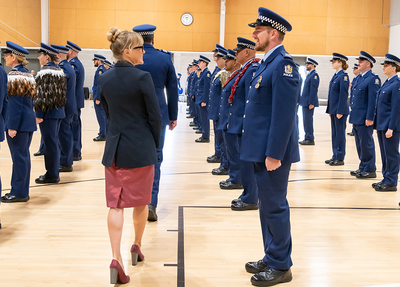Horror films, scary sounds and pesky sleepovers
Caitlin on March 16, 2022
When I was 11 years old I went to a sleepover and my life was momentarily destroyed by the horror film, The Ring. Over the next few months at night I was plagued by the sounds of the film, much like a lot of other tamariki from my generation.
When I was 11 years old I went to a sleepover and my life was momentarily destroyed by the horror film, The Ring. Over the next few months at night I was plagued by the sounds of the film, much like a lot of other tamariki from my generation.
Safe to say the movie terrified me. I didn’t sleep that night – my friends and I were sleeping in a freaking campervan outside the house. I was past the age where I could call my mum to come get me because that just ain’t cool. So it’s fair to say I was a wee bit stuck.
Lying in bed while my friends slept, I watched the door and waited for death to collect me at the hands of *insert name here* - I actually still can’t bring myself to say her name.
For months I struggled to get to sleep and when I woke up in the middle of the night I was so scared. I started imagining the phone ringing and at times I swear it really was. I could hear ‘her’ voice down the phone, telling me I would die in seven days. Silence would turn into white noise and I was petrified of what was coming out of the TV upstairs.
After some time and a boatload of anxiety I was able to slowly move on. However, the sound of TV static, white noise and a particular phone still ring drains the colour from my face.
But why do sounds and music have such a lasting power over us as viewers?
Any budding film student could tell you why sound is so important in movies. It engages audiences, get the information across and increases the quality of the ‘movie experience’. Sound also gets our emotions going, emphasizes what is happening on screen and indicates the mood of the scene. Pretty key right?
When used cleverly, things like dialogue, soundtracks, sound effects, and even silence, easily improves a movie and its “watchability”.
For example, romantic dramas use sad and emotional music as a tool to make us cry. I’m thinking of The Titanic and the song My Heart Will go On. With horrors, they use sounds and music as a tool to essentially make us poop our pants. The cult classic Jaws springs to my mind and its threatening two musical notes from the infamous John Williams score – dah dum.
All of these sounds and the music seems to stick like glue. For me, it was the phone ringing, “seven days” and the TV static noise.
How do we avoid sound having such a lasting affect and help tamariki safely watch horror films?
At home advice:
- Talk with young tamariki and encourage them to cover their ears to block scary or sudden sounds. This can help reduce the sensory overload that contributes to anxiety.
- Help them understand that covering or closing eyes is not as effective as blocking out sound.
- Debrief after you watching challenging content. Identify what was the hard bits for your tamariki them and talk through them.
- Work out their line together. What themes and scenes tend to upset them? Knowing this means in future they can avoid certain films and series the stuff they struggle with.
- Check the rating. A warning note will refer to the stronger parts, such as violence or horror. This will help you and your tamariki make an informed decision based on their sensitivities.
- Remember, being scared is normal so try not to joke about what they are scared of or make them feel embarrassed.
Advice for sleepovers:
- Hosting a sleepover? Check with the other children’s whānau about any sensitivities their child might have. Research before you press play and make sure to check the rating.
- Is your tamariki attending a sleepover? Have a safe word and if they text or call you saying it come up with an excuse to pick them up that keeps their mana intact in front of their friends.
Give the younger members of your whānau the tools they need for watching/avoiding challenging content they struggle with. That way when they get to that pesky sleepover age tamariki will have the tools to block out the scary sounds and feel in control of the situation – and actually sleep that night.
Further reading:
Taking control: how to make the most of parental controls
Talking with young people about what they’re watching
Subscribe to our blog
Stay up to date with the Classification Office blog.


